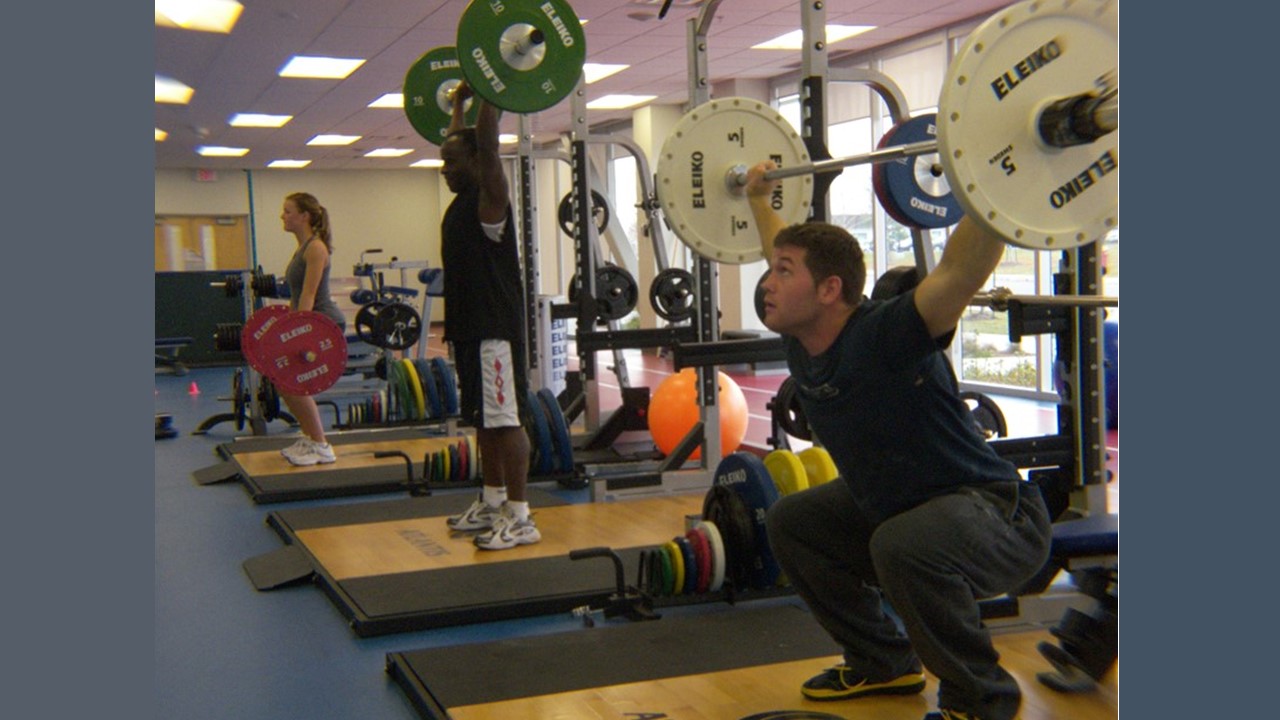Make Them Feel Special: 4 Tips to Building Relationships within your Athletic Department

When it comes to being a Strength & Conditioning Coach in an academic setting (University, College, High School), there are many challenges that come with the job that can include lack of space/funding, scheduling issues, as well as long hours with low pay. The biggest struggle I have encountered in my three years working full-time in this setting, is getting the buy-in of both the sport coaches and student-athletes. S&C professionals don’t have much say when it comes to playing time for athletes (unless you are a dual role S&C/Sport Coach). Due to this athlete engagement can be limited and instilling cultural expectations and required effort is challenging.
However, we all know that the training programs we write are only as good as the buy-in they get, so finding ways to increase that effort by the athletes would allow us to do our jobs better, make more of an impact in their development, Often this comes in the form of the sport coach supporting the S&C process, encouraging the cultural buy-in and ensuring players are actually listening to what you say, as they hold all the cards when it comes to what the players really want- playing time! Therefore, developing strong relationships built on trust in what you can offer is key to getting coaches to back you and players to buy-in to your process. Through my own experience there are 4 key approaches that I have found to be successful to enhance the relationships with those you work with, both coaches and athletes, that have led to greater buy-in from coaches and athletes.
#1. Listen to Them:
One of the worst things we can do as strength & conditioning professionals is talk. Yes, we may have a Master’s degree or even a PhD. Yes, we’ve studied athletic performance and physical training until we know the textbooks like the back of our hand, but do we know what the people we are serving are really looking for? Afterall, it is no good if I tell a young female soccer player that doing chin-ups will give her HUGE Lats if she is terrified of gaining size when she actually wants to lose weight. Or if I keep telling my rugby coach that my program will help his players be lean and fast when they actually need them to put on size so they aren’t getting mangled on the pitch every weekend. I could go into endless examples, but the point I am trying to get across if you need to LISTEN.
You want to know the best way to listen to someone else? Ask them questions, get them talking. It is hard to listen to someone fully if you are talking over them or interjecting all the time. Ask your question and hear them out fully. Hear the emotion in their voice when they talk about how hard they have been working to get stronger, but they are still slow and afraid the coach will cut them from the varsity team. See how the coach’s body language relaxes as they explain their goals for the team that year. See what gets others excited, figure out their why and help them accomplish their goal. And the only way to do that effectively is to ask and then listen!
#2. Pick Your Battles:
I struggle with this every single day as a young coach. At times a sport coach may see something on social media, hear something from one of their colleagues, or remember something they used to do in regard to strength and conditioning. Now they will run it by you to see what you think. Sometimes it sounds like “Hey, what are your thoughts on X”, but at times it may come across as “Hey, I need you to do X with my athletes”. While this can be a tough scenario, we need to know when to pick our battles. You see, while this is our job and our passion, we need to decide if what they are asking us is worth going to battle over. Work is way more unpleasant when you have a sport coach that doesn’t respect you. Yes, if they are asking you to do something that is dangerous, then you try to talk and converse about it a bit more. You need to protect the athletes and “Do No Harm”. But, if what they are asking can be mixed into your session quite easily without much hassle, then getting the sport coach to have some say can help strengthen your relationship, if done correctly.
Some strategies that I am currently finding effective is to go to the coach first. Ask them, “Hey what do you think of this new program we are doing?”. “We are going to be doing X for conditioning today, does that work with your plan?” Coming to them first shows them you respect them, their role.
There will be times to stand your ground. Once again, if athletes will be put at risk or if logistically it is unrealistic then make sure to voice your opinion in a respectful manner.
#3. Be Willing to Help
This third point goes back to the idea of Strength & Conditioning Coaches as servants. Now I know lots of you reading this may disagree with me on that term, but we are in the service industry. Our job is to serve the athletes and coaches and ensure their needs are met, not our own.
This can come down to putting in some time with a little elbow grease to earn trust and respect. Yes, that might mean running an extra session for the sport coach’s son (or letting him jump into a session), writing programs for coaches and staff, volunteering at track & field events, helping set-up for the basketball game, helping clean the floors in the gym, staying late to chat with some recruits, or having a meeting with a troubled athlete. There are things that are in the job description, and things that are not. I can tell you with 100% certainty, that by doing things that were not in the job description, I have enhanced my ability to do the things that were by creating a culture of respect and trust because athletes and coaches knew I was willing to do whatever it takes to help them succeed. Yes, it is tough at times and you do have to establish some boundaries, especially when you are young and starting a family like I am/have. Afterall, being willing to help most likely means extra time, extra work, extra care. It is the time part that worries us all.
I have found that having a strong support system (aka my wife) and people who are able to speak into my life and situation to be able to tell me when I am doing too much, is very valuable. Being on your own and doing things at on a whim can leave you and your family stretched too thin. So, I always try and check with my wife, if possible, as well as ask my mentors and make sure that these extra opportunities are things that will help my work situation without adding stress to my home one. When all is said and done, people see what you do and how you do it, and that leads them to want to listen to you more as they can tell you want what is best for them. But you also have to make sure you are doing what is best for you. After all, “Nobody cares how much you know until they know how much you care”.
#4. Make Them Feel Special:
Last point I got from one of my mentors Johnny Parker. Coach Parker always tells me “Make them feel special”. As S&C coaches, we don’t get to determine playing time or scholarship money. Our sole job is to make these athletes better, no matter what. Yes, there are many nuances into what makes an athlete better. Beyond enhancing physical performance metrics we have the scope to have a positive impact on our athletes self-confidence and self-esteem. Self-confidence is sometimes the greatest attribute one can have. As support staff who do not get to determine playing time, we get the opportunity to unbiasedly support and love these kids into getting better. No matter whether they are on the first line or a redshirt freshman, treat everyone the same. Make them feel like a star when you coach them. Learn their name. Learn what their favourite kind of music is when they train. Learn what their favourite sports team is. Be invested in them as people first and foremost. Show them how to be a star and they will start to become one. Treat them like dirt and they will respond accordingly.
Same goes for sport coaches. All we can do is support, offer insight, and make sure they are able to do the best job they can.
Having someone believe in you is a great feeling and can lead to greater self-belief (which in turn leads to greater performances). After all, at the end of the day, people won’t remember what you said, or what you did, they will remember how you made them feel. And I sure want people to remember me as being someone who believed in them, made them feel good about themselves, and helped them believe in themselves as well. The impact of self-belief goes far beyond the wall of the weight room or the sporting arena, and we as coaches have a unique chance to positively impact that in our athletes and sport counterparts.
To summarize, as a strength and conditioning coach, you will have to get used to people telling you how to do your job. There is so much info on the internet that it seems like your job is easy and anyone can do it. As an S&C coach, we have control over relationships we build with both coaches and athletes. These relationships can go a long way in instilling the culture we want, effort we need, and performance required to do our jobs effectively. While it won’t be easy, being able to listen to what they say, pick your battles, help out, and make them feel special are some effective strategies to have you on your way to making a greater impact than you ever thought possible.






